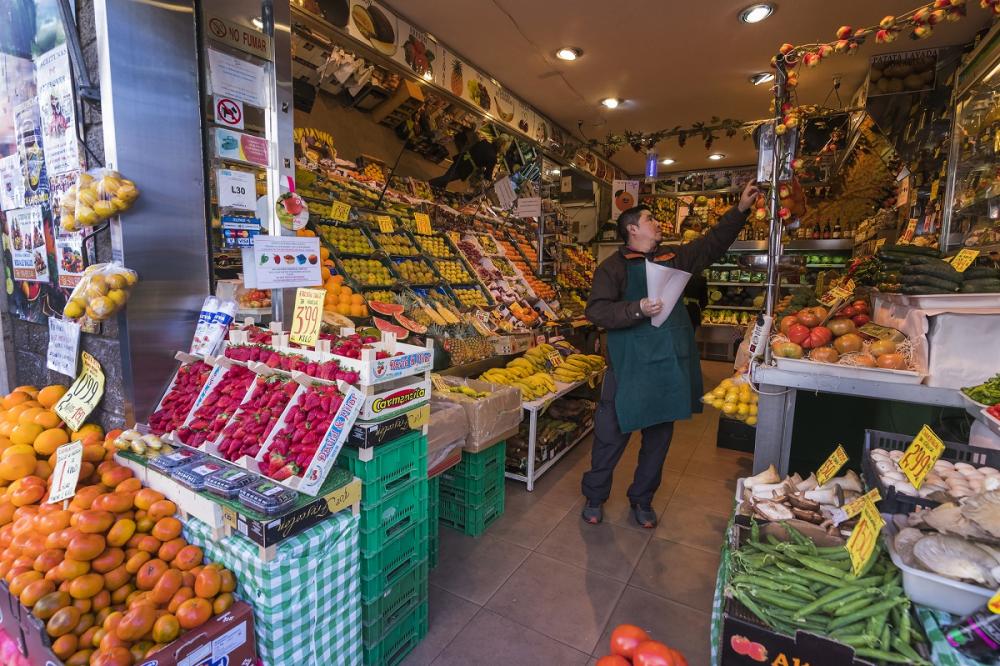IICA has organized a series of six virtual seminars to identify potential solutions and anticipate the policies that will be required to contribute to food security, economic recovery and trade in the wake of the pandemic.

San Jose, 7 May 2020 (IICA). Anticipating the scenarios that agrifood systems in the Americas could face as a result of the Covid-19 crisis, identifying technological innovations that would allow for overcoming challenges in the wake of the pandemic, and identifying adequate public policies for these purposes.
These are the primary objectives of a series of virtual seminars that the Inter-American Institute for Cooperation on Agriculture (IICA) is organizing, and which will begin on May 12.
IICA has called upon leading figures from across the region to participate in six sessions, during which they will share their perspectives regarding the economic, social and political impacts that must be taken into account in order to foster the development of the agrifood sector within a new, more challenging context.
“One of the key goals that IICA has set for itself is to listen in order to propose solutions and take action. In this regard, listening also involves identifying knowledgeable individuals and providing them with a platform to interact and share their perspectives and outlooks on the post-Covid-19 scenario in areas of critical importance,” explained Federico Villarreal, IICA’s Director of Technical Cooperation.
The first virtual event will be held on Tuesday, May 12. Manuel Otero, Director General of IICA; Rebeca Grynspan, Ibero-American Secretary General; and Enrique Iglesias, former President of the Inter-American Development Bank, will participate in the dialogue.
The remaining sessions, which will be carried out over the course of two weeks, will analyze matters related to sustainable development, agriculture and food within the new international context; innovation systems and value chains after Covid-19; the effects of the pandemic on international trade and health regulations; food supply, family farming and short circuits in the aftermath of the health crisis; and the post-Covid-19 period from the perspective of Caribbean countries.

Elsa Murano, former Undersecretary of Agriculture for Food Safety of the United States; Anabel González, former Minister of Foreign Trade of Costa Rica; and Cassio Luiselli, former advisor to the President of the Republic of Mexico on agricultural development issues, are a few of the specialists who will participate as speakers.
The seminars will also include the participation of Guillermo Valles, former Director of International Trade for the United Nations Conference on Trade and Development (UNCTAD); Juan Lucas Restrepo, Director General of the Bioversity International – International Center for Tropical Agriculture (CIAT) Alliance; and economist and professor Ricardo Abramovay of the School of Economics, Business and Accounting of the University of São Paulo (USP).
The seminars will be hosted on the Institute’s new Virtual Conference Room, available at www.iica.int, and will be disseminated on IICA’s YouTube channel, as well as its social media pages on Facebook, Twitter and Instagram.
Overview of the seminars:
First session: Introduction. “Post-crisis” challenges
-
Introduction to the series. Manuel Otero, Director General of IICA
-
Political and social effects of the Covid-19 crisis.
Live stream on FB Live and YouTube: Tuesday, May 12, 4:00 p. m.
Speakers:
Rebeca Grynspan, Ibero-American Secretary General
Enrique Iglesias, former President of the Inter-American Development Bank
Manuel Otero, Director General of IICA
Second session: Sustainable development, agriculture and food within the new international context
-
What will sustainable development models look like, and what will be the standing of the agrifood sector, in the post-Covid-19 world?
Live stream on FB Live and YouTube: Thursday, May 14, 4:00 p. m.
Speakers:
Ricardo Abramovay, economist and professor in the School of Economics, Business and Accounting of the University of São Paulo (USP)
Guillermo Valles, former Director of International Trade for the United Nations Conference on Trade and Development (UNCTAD)
Third session: Innovation systems and value chains after Covid-19
-
What types of technological innovations are required or available to meet the post-Covid-19 challenges?
-
What restrictions must be anticipated to capitalize on these innovations?
Speakers:
Elsa Murano, former Undersecretary of Agriculture for Food Safety of the United States
Juan Luca Restrepo, Director General of the Bioversity International – International Center for Tropical Agriculture (CIAT) Alliance
Fourth session: Effects on international trade and health regulations after Covid-19
-
What changes are expected in international trade structures and how will they affect countries in the region?
-
Must we anticipate a higher level of non-tariff barriers?
-
How can we anticipate these new trends?
Speakers:
Cassio Luiselli, former advisor to the President of the Republic of Mexico on agricultural development issues
Anabel González, former Minister of Foreign Trade of Costa Rica
Fifth session: Food supply, family farming and short circuits after Covid-19
-
How will Covid-19 affect prevalent food security strategies in countries across the region?
-
What can we anticipate in terms of the impact of these changes on family farming in countries across the region?
Sixth session: The post-Covid-19 scenario from the perspective of Caribbean countries
-
What main impacts should we anticipate for the post-Covid-19 scenario?
-
What will be the position of the agriculture sector within this new framework?
-
What strategies must we begin to develop to prepare for this new scenario?
-
What changes to institutional frameworks and the climate change agenda can we predict for the post-Covid-19 scenario?
More information:
Federico Villarreal, Director of Technical Cooperation at IICA.
federico.villarreal@iica.int











